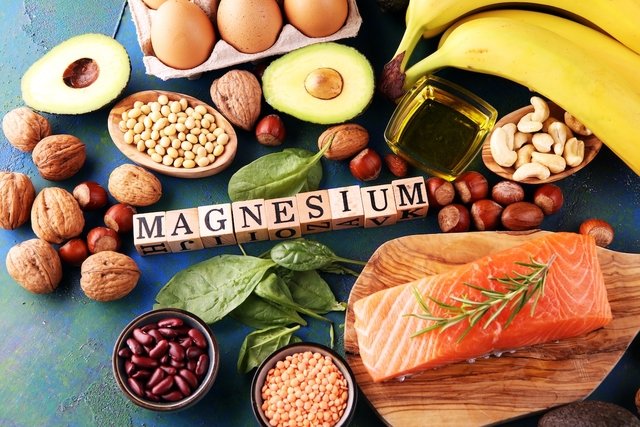Foods that are rich in magnesium include seeds (like flaxseeds and sesame seeds), nuts (like chestnuts and peanuts) and whole grains (like whole wheat rice and oatmeal). Magnesium can also be found in leafy green vegetables, like spinach and chards, as this mineral is an essential component of chlorophyll.
Magnesium is an essential mineral used in the body for many functions, like protein production, central nervous system functioning, blood sugar control and blood pressure control.
This mineral is needed for optimal nerve impulse transmission and muscle contractions, which is why a magnesium deficiency can lead to symptoms like tremors, drowsiness and muscle cramps.

List of food with magnesium
The following table outlines 25 food sources of magnesium and details the amount of magnesium and calories found in 100 g of each source:
Other foods that also contain great amounts of magnesium are milk, yogurt, dark chocolate, figs, avocado and beans.
Magnesium deficiency symptoms
Low levels of magnesium in the body can cause symptoms like:
- Nervous system abnormalities, like depression, tremors and insomnia
- Cardiac failure
- Osteoporosis
- High blood pressure
- Diabetes
- PMS
- Insomnia
- Muscle cramps
- Decreased appetite
- Drowsiness
- Nausea and vomiting
- Memory problems
A healthy adult needs between 310 to 420 mg of magnesium per day, which is easily achievable through a balanced diet.
Nonetheless, a magnesium deficiency can be related to severe malnutrition, older age, kidney disease, intestinal disorders, or medication use (especially cycloserine, furosemide, thiazides, hydrochlorothiazides, tetracyclines and oral birth control).
When to supplement
The need to supplement with magnesium is rare. It may be recommended to patients presenting with excessive vomiting or diarrhea. Pregnant women with low levels who are experiencing uterine contractions may also be prescribed magnesium supplements. Supplements are usually stopped around week 35 of gestation, so that the uterus can correctly contract during labor.
In addition, supplementation may be necessary for those who have conditions that naturally lower magnesium levels, like older aging, diabetes, excessive alcohol consumption and the use of medications listed above.
In general, magnesium is supplemented when levels are below 1 mEq per liter of blood. Supplementation should be directed by a doctor or registered dietitian.
